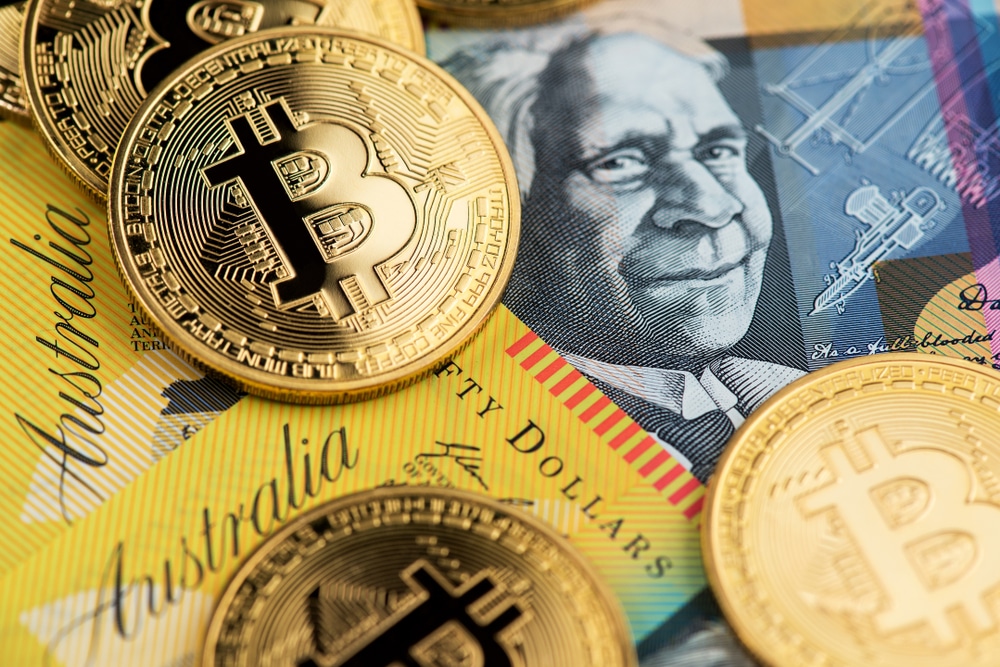
The global phenomenon of Bitcoin, its alternative token programs or altcoins, and blockchain technology has swept across the globe like a financial tsunami of sorts. When news of its existence commenced in 2009, most observers were sceptical about whether the entire concept would ever get off the ground. However, against the conservative wisdom of its critics, the cryptocurrency domain has grown astronomically. There are now nearly 22,000 distinct programs, more than 500 exchanges across the planet, and a market capitalisation hovering just under US$1tn.
Although the number of programs exceeds 20,000, this figure is a bit misleading. The majority of these programs are in the early start-up phase of their development. Only after programs acquire a level of notoriety and popularity will any exchange even consider making a market for its tokens. One key statistic is that the top 10 cryptosystems comprise 74% of the total market capitalisation of the overall crypto space. The top programs have established themselves, while new entrants still have a long way to go to become worthy of public investment.
The road to this success story has been far from an easy one. Regulators and government officials have tried to stop the movement in its tracks. Some countries, such as India and China, have banned aspects of the payment system while welcoming the inflow of currency due to homegrown mining activities. This new digital economy behaves outside of the law because lawmakers have yet to catch up with its nuances, while attempting to force it to fit within existing statutes, especially with what is known as initial coin offerings (ICOs).
The crypto space is largely underregulated, though there is general compliance with payment processing regulations and Anti-Money Laundering legislation. Anonymity and the decentralised nature of the blockchain, however, have enabled clever criminals to hide funds from their illicit activities and move them about without a clear trail. Investors, trying to cash in on new program launches, have just as often run into monumental scams, and exchanges, built without regulatory security mandates, have been hacked to the tune of billions of dollars.
Trading risks and casualty rates, however, remain very high. Some studies suggest a loss rate of 70% to 80% and higher. Many beginners approach cryptos like a new form of online gambling, trading without a plan and relying upon luck. The traders who do win have learned to have a disciplined approach to the market, employ proven risk management techniques, and follow a step-by-step strategy that they have tested and practised offline on a demo system.

Although highly risky, new investors still flock to cryptos, hoping not to miss out on the next high flyer. Preparation, however, is key. In the next few paragraphs, you will learn about crypto trading, whether it is legal in Australia, which organisation regulates it in the country, and how to choose a safe and secure broker in Australia to enable your crypto trading adventure. We will also provide a list of the top brokers in Australia that have established themselves as the leaders in this activity and are well worth your consideration if you are looking for a new business partner.
What Is Crypto Trading?
For nearly a decade, the only way to participate in the crypto market was through an exchange by buying and selling coins directly from their platforms. More options exist today. You no longer have to deal with an exchange or buy and sell the underlying asset. Creative brokerage houses now offer contracts for difference (CFDs), a deal between you and your broker related to the direction of future prices for the asset. CFDs allow you to go long or short on crypto, the latter being difficult under the existing ‘buy/sell’ format.
Options and futures trading have also evolved, but the barriers to entry generally prohibit access for non-professionals. For retail traders, CFDs have been a good substitute, though the trader is not dealing with a tradable security but with an arrangement with the broker offering the service. When loss rates are high, the broker profits from the ‘net’ difference between winners and losers of its CFDs, as long as it hedges its risk exposure in the open market.
The benefit is that the trader can choose the amount to put at risk. Speculating correctly on the direction of future prices can deliver large returns when leverage is used effectively. Leverage can also magnify losses, and for this reason, many major regulators have moved to limit the amount of leverage or margin that can be used in crypto trading. Margin calls can happen when the market moves abruptly against you. Be sure to select a broker that offers negative balance protection to ensure against losing more than your balance.
Is Crypto Trading Legal in Australia?
Is crypto trading legal in Australia? ‘Yes’ is the most direct answer to this question, but officials at the Australian Securities & Investments Commission (ASIC) are concerned about the level of scams proliferating within the crypto space and the shear volatility of prices for crypto assets, including Bitcoin and its altcoin brethren. Cryptocurrencies have been termed the most volatile asset class in history, and for good reason.

Holders of large sums of tokens, nicknamed ‘whales’, can easily distort prices to their advantage, in addition to prevalent pump-and-dump schemes and similar fraudulent price manipulation activities. Transactional monitoring is the protective cover in most regulated financial markets, and until all exchanges take on this task, price manipulation will always be a problem.
Despite being the ‘Wild West’, so to speak, without the benefit of regulated exchanges and transaction monitoring for fraud, the crypto phenomenon has created many millionaires and also a few billionaires. The risks may be enormous, and many investors may have lost a great deal of money, but the system has evolved. Traditional brokers that looked the other way in the beginning have opened their doors to compete for crypto investors and traders alike.
Australian regulators have followed other major regulators in a general crackdown on CFD trading, but it has not followed Europe or the FCA in the UK in banning CFD trading on cryptos by retail customers. It is concerned that consumers do not understand the risks of crypto trading, and this concern has only increased as Australian investors continue to invest in cryptocurrencies as their second asset class of choice.
Who Regulates Crypto Trading in Australia?
The regulator of crypto trading in Australia is ASIC. In May 2019, it clarified its positions relative to crypto trading and ICOs. In the case of the latter, ASIC has ruled that if an ICO is raising capital in the form of an investment scheme, then it must comply with local security laws for capital raises.
ASIC also published guidance related to trading cryptocurrencies and the tax consequences of dealing in these instruments. ASIC, however, is very concerned that exchanges are not regulated, that price fluctuations can be large, that possible theft by hackers is frequent, and that criminals move freely within the crypto space. ASIC has moved to extend restrictions on CFD trading related to leverage and other issues, but it has not banned CFD trading in cryptos for retail traders for the time being.
How to Choose a Safe Crypto Broker in Australia
Since the evidence of fraud and shady business practices is pronounced in the crypto space due to its lack of regulation, it is extremely important that you choose a safe and reputable broker or exchange to be your business partner in this activity. We have provided a list in the next section to assist you in your search, but you will want to find a broker that offers what you want as a trader. Your appetite for risk will also have a bearing, but you will want a regulated broker with a great reputation for low fees, quick trade executions, ample support and a user-friendly platform.
The Safest Crypto Brokers in Australia
Choosing a safe broker to deal in the crypto market can be a difficult task, but we have made the decision-making process easier by doing the heavy lifting for you. Based on our continual reviews of crypto brokers in Australia, we have prepared the following list of the best of the best. All of these brokers have established a fine track record for safety, security and high-quality trading experiences and are worthy of your consideration:
| Broker | Features | Min Deposit | EURUSD Spread | ||
|---|---|---|---|---|---|
 Your capital is at risk
US Clients: No Regulated : Yes Your capital is at risk
US Clients: No Regulated : Yes
|
|
$500 | From 0.6 pips | ||
|
|
|||||
Concluding Remarks
Trading cryptos in Australia for the moment is a legal activity, condoned by ASIC officials. Using CFDs seems to be the popular method due to its low cost of entry and the ability to magnify gains with leverage. Dealing directly with an exchange is also a possibility, but the trader must buy the full value of cryptocurrency from the exchange. Trading in cryptos, however, is high risk. Practice your trading strategy, and enter the real-time market only after you feel comfortable. Trading cryptos can be exciting, but approach it like a business and in a disciplined manner in order to ensure your success.